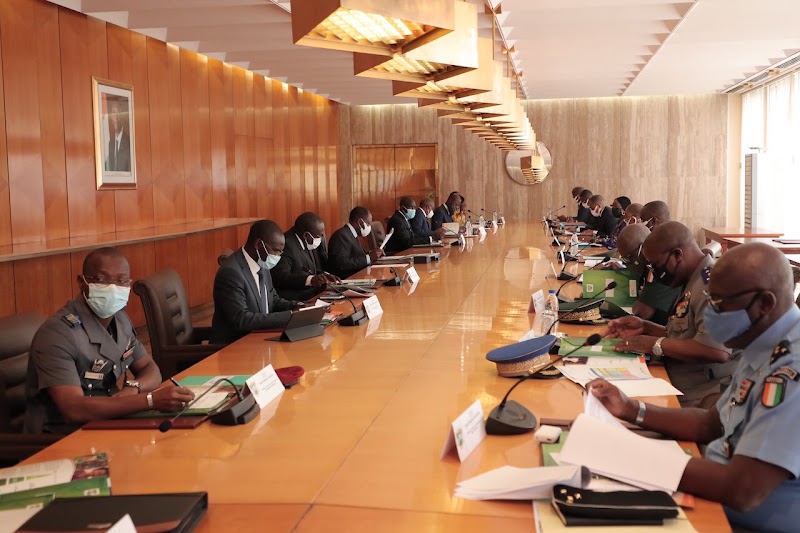Félix Houphouët-Boigny, born on October 18, 1905, was the first president of Côte d’Ivoire. He played a pivotal role in the country’s independence movement and guided it through its formative years as a republic.
Houphouët-Boigny was born into the Baoulé ethnic group, the largest ethnic group in Côte d’Ivoire. He received his education at a Catholic mission school and went on to attend medical school in Dakar, Senegal. However, he soon abandoned his medical studies to pursue a career in politics.
Houphouët-Boigny’s political career began in the 1940s when he was elected to the French National Assembly. He quickly rose through the ranks and became a prominent figure in the anti-colonial movement. In 1958, Houphouët-Boigny became the first president of the Ivory Coast, which gained independence from France in 1960.
As president, Houphouët-Boigny pursued a policy of economic liberalism and encouraged foreign investment. He also implemented a number of social programs, including free education and healthcare. Under his leadership, Côte d’Ivoire experienced a period of rapid economic growth and stability.
Houphouët-Boigny’s presidency was not without controversy. He was accused of authoritarianism and suppression of dissent. However, he remained a popular figure in Côte d’Ivoire, and his legacy is still contested today.
Achievements and Legacy of Félix Houphouët-Boigny:
- Led Côte d’Ivoire to independence from France and became its first president in 1960.
- Pursued a policy of economic liberalism and encouraged foreign investment, leading to rapid economic growth.
- Implemented a number of social programs, including free education and healthcare.
- Established the African Development Bank (ADB) in 1964, contributing to the economic development of Africa.
- Played a key role in promoting peace and stability in the West African region.
- His presidential tenure lasted for over 30 years, making him one of the longest-serving presidents in Africa.
- His rule was criticized for its authoritarian tendencies and suppression of dissent.
- His legacy remains a subject of debate, with some praising his achievements and others criticizing his political style.
Félix Houphouët-Boigny died on December 7, 1993, at the age of 88. He is remembered as a complex and controversial figure who played a significant role in the history of Côte d’Ivoire and Africa.
Emblem of Côte d’Ivoire
To enrich your insights into presidential figures worldwide, also explore some prominent first presidents from other countries, such as . Delving into the leadership journeys of these figures can offer valuable perspectives on their historical significance and pivotal roles in shaping global politics.
The official residence and symbol of the Côte d’Ivoire President
10 Iconic Presidents Who Shaped Côte d’Ivoire’s History

In Côte d’Ivoire, also known as Ivory Coast, the office of the President is an important position that has been held by several influential leaders throughout the country’s history. Here are 10 of the most popular presidents from Côte d’Ivoire:
- Félix Houphouët-Boigny
- Henri Konan Bédié
- Robert Guéï
- Laurent Gbagbo
- Alassane Ouattara
- Houphouët-Boigny was the first President of Côte d’Ivoire, serving from 1960 until his death in 1993. He was a key figure in the country’s fight for independence from France and is considered the founding father of modern Côte d’Ivoire.
- Bédié succeeded Houphouët-Boigny and served as President from 1993 to 1999. He implemented economic reforms and is known for his emphasis on Ivorian culture and identity.
- Guéï came to power through a military coup in 1999 and served as President until 2000. His time in office was marked by political unrest and an attempted coup against his rule.
- Gbagbo was elected as President in 2000 and served until 2011. His presidency was marred by political instability, including a civil war and charges of human rights abuses.
- Ouattara is the current President of Côte d’Ivoire, having been in office since 2011. He has focused on economic development and reconciliation initiatives, working towards stability and prosperity for the country.

